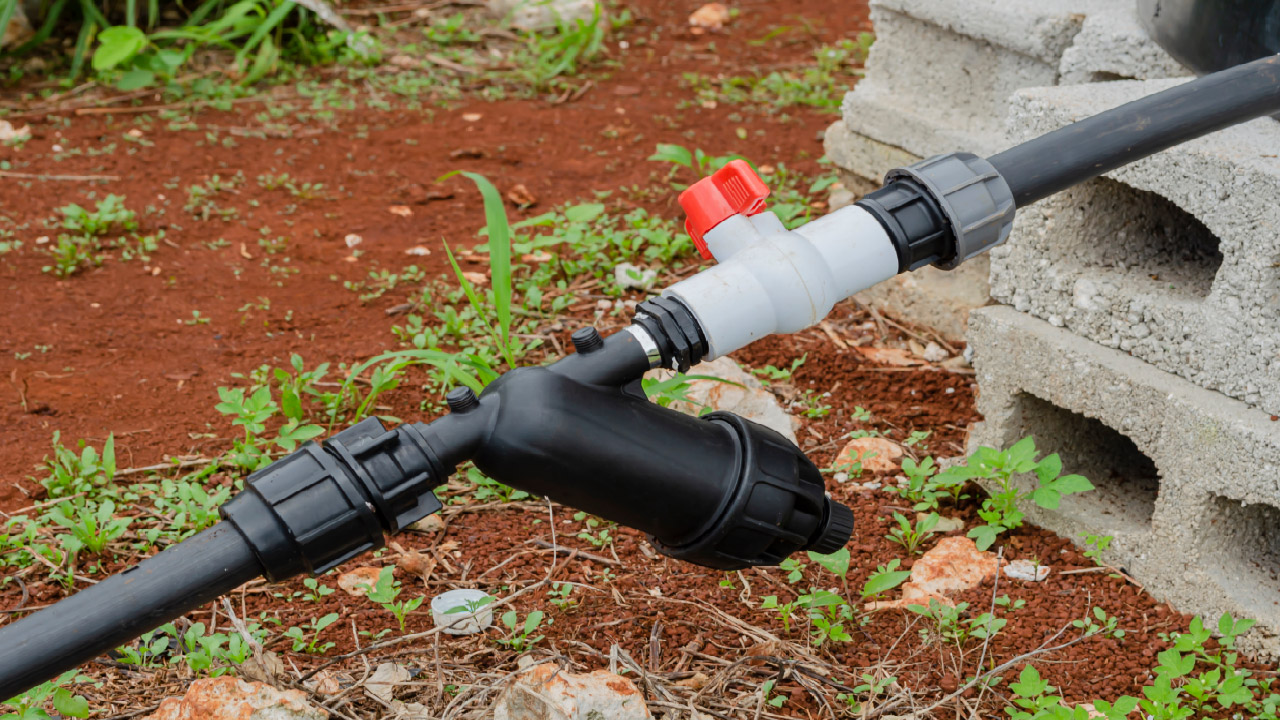What are the Different Types of Ball Valves in Irrigation?
Oct 11th 2023
Think you know ball valves? Think again. The irrigation game has changed, and the valves you choose can make or break your system. We're not just talking water flow; we're talking efficiency, durability, and yes, even cost savings.
Here's what we'll unravel for you:
- Installation tips that even pros would nod at
- When and how to use each valves
- Brass vs. PVC Ball Valves, the showdown you didn't know you needed
- In-depth look at each valve type and their specific uses
Ready to become a valve virtuoso? Let's dive in.
Installation Tips: Setting the Stage for Success
Before you even think about which valve to choose, let's talk installation. It's not just about screwing in a piece of hardware; it's about strategic placement. Your valve's location can affect everything from water flow to maintenance ease.
- Accessibility: We've said it before, but it's worth repeating. Easy access to your valves is crucial. Consider future landscaping projects that might obstruct your path.
- Pipe Compatibility: PVC with PVC, brass with brass. But what about mixed systems? In that case, consider Threaded Ball Valves. They offer more flexibility in connecting different types of pipes.
- Pressure Points: High-pressure areas are critical in your irrigation system too. Union Ball Valves are your go-to for these zones.
- Water Source: Know where your water is coming from. If it's a well, you'll need a valve that can handle particulates. Brass Ball Valves are excellent for this.
- Flow Direction: Valves have a flow direction and installing them backward is a rookie mistake. Look for the arrow indicators on the valve body.
- Sealant Use: When connecting threaded valves, use a PTFE thread sealant. It prevents leaks and makes future disassembly easier.
- Manual Override: Always have a manual override option. In case of electrical failure, you'll thank yourself for installing a Slip Ball Valve as a backup.
Pro Tip: Before fully tightening the valve, partially open it. This prevents the rubber seal from twisting and ensures a better fit.
Tool Recommendation: A pipe cutter is a lifesaver for clean, straight cuts. It's a small investment for a big payoff.
When and How to Use Each Valve: Timing and Technique Matter
Knowing when and how to use each valve is the key to unlocking your irrigation system's full potential.
- Union Ball Valves: These are your heavy lifters. Use them in high-pressure zones or where you anticipate frequent maintenance. They're easy to disconnect without disturbing the entire system.
- Slip Ball Valves: Ideal for low-pressure zones and quick shutoffs. They're your go-to for manual override.
- Threaded Ball Valves: Use them when you have mixed piping materials. They're versatile and offer a secure fit.
- Brass Ball Valves: Got a well or dealing with dirty water? Brass is your best bet. It's resistant to corrosion and dependable.
- Barbed Ball Valves: These are perfect for drip irrigation systems. They offer precise control and are easy to install.
Pro Tip: Always turn the valve handle slowly. A sudden change in water flow can cause water hammer a surge that can damage your pipes.
Not all valves are created equal. Your choice should align with your system's needs and the water source. A mismatch can lead to inefficiency and increased maintenance. A valve key or a valve wrench can be a real lifesaver for hard-to-reach valves. Keep one handy.
Brass vs. PVC Ball Valves: The Showdown You Didn't Know You Needed
You've heard the names: Brass and PVC but what's the real difference? And more importantly, which one should you choose for your irrigation system? Let's break it down.
- Durability: Brass is the heavyweight champion here. It's corrosion-resistant and can handle extreme temperatures. PVC, while durable, can't take the heat.
- Cost: If you're budget-conscious, PVC is your friend. It's generally cheaper than brass.
- Maintenance: Brass valves require less upkeep. They're less likely to leak and can handle more wear and tear. PVC valves may need more frequent replacements.
- Environmental Impact: PVC is less eco-friendly. If you're looking to go green, brass is a better option.
- Water Quality: For well water or water with particulates, brass is the clear winner. Its corrosion-resistant properties make it ideal.
According to studies, brass valves have a lifespan longer than their PVC counterparts. Longevity matters. If you opt for brass, invest in a quality adjustable wrench. For PVC, a simple pipe wrench will do.
Each valve type has its pros and cons. Your job is to match them with your system's specific needs. A flow meter can help you monitor water usage, making it easier to spot any issues with your valves or irrigation system.
Master Your Irrigation Game with DripWorks
You've made it to the finish line. You're now equipped with the knowledge to make informed decisions about ball valves in your irrigation system.
Key Takeaways
- Installation is more than just screwing in a valve; it's about strategy.
- Know when and how to use each valve type for maximum efficiency.
- Brass vs. PVC: Choose based on your specific needs and long-term goals.
- Each valve type serves a unique purpose; match them with your system's requirements.
DripWorks isn't just a brand; it's your partner in irrigation excellence. From Union to Barbed Ball Valves, we've got the quality products you need to make your irrigation system not just functional, but exceptional.

